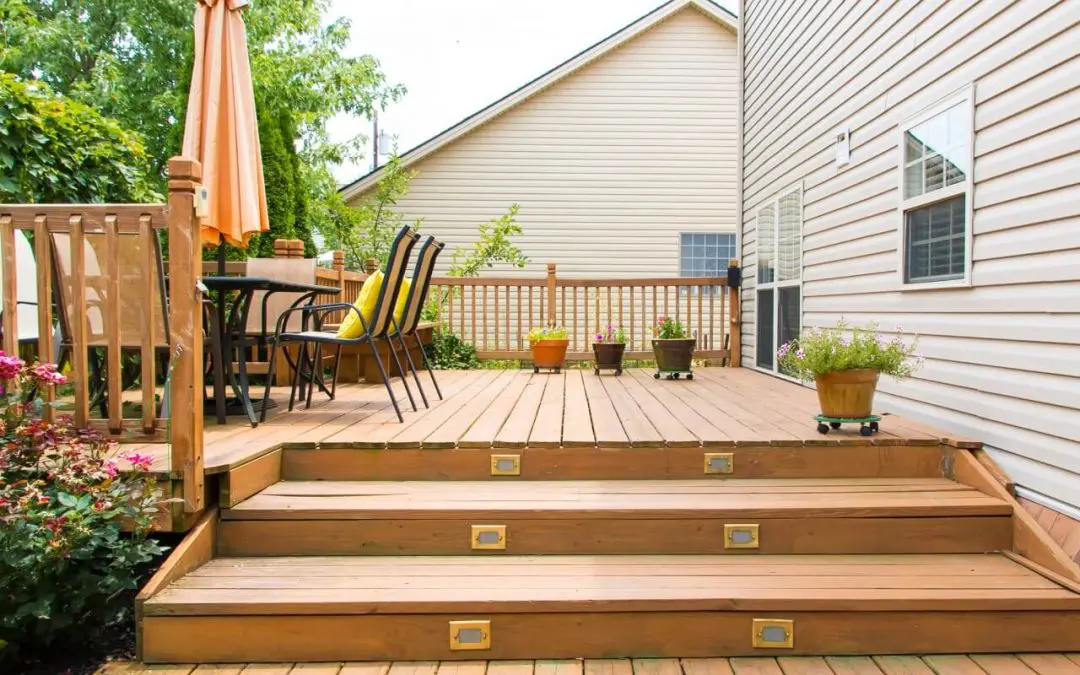5 Different Types of Decking Materials: The Pros and Cons
While adding a deck to your outdoor living space is an exciting project, choosing the best decking material can be a challenge. With so many materials out there, it may be tough to select the right option for your needs. Check out this list outlining the pros and cons of five types of decking materials to help you make an informed decision.
Tropical Hardwood Types of Decking Materials
Tropical hardwood is one of the most popular materials for building a deck. They are durable and can last a lifetime when appropriately installed and maintained.
Pros
• Whether you’re looking for cumaru, tigerwood, or ipe, tropical hardwoods are readily available in most areas.
• These materials are naturally beautiful, durable, and highly resistant to the elements. They resist rot and insects.
Cons
• Tropical hardwoods come with a relatively high price tag.
• They are tough and more difficult to cut and work with.
• Hardwoods are expensive to install and because of their natural oils, don’t readily accept finishes or stains.
Pressure-Treated Wood
Pressure-treated wood is injected with a solution of chemical preservatives to make it durable and protect it from insects and rot. It is one of the top choices for decking materials for many homeowners. Pressure-treated lumber is most commonly pine but may also be available in other species.
Pros
• Pressure-treated wood is one of the most affordable types of decking materials.
• It is easier to cut and install than hardwoods.
• This type of lumber is available at any home improvement store.
Cons
• Pressure-treated wood tends to warp and crack over time.
• These materials require more frequent maintenance including pressure washing and painting or sealing.
• This type of decking splinters more easily than hardwood.
Composite Decking
Composite lumber, also known as fabricated plastic, is an excellent choice for decking. Composites are made out of polyvinyl chloride plastics or manufactured using recycled materials and wood fibers.
Pros
• They are easy to maintain; you won’t need to sand, paint, or stain this type of decking.
• Composite decking materials don’t warp or splinter and are not easily affected by insects or rot.
• They are durable and can last for years.
Cons
• Composite materials manufactured with wood will decay over time.
• Because they are made with plastic they may be slippery underfoot.
• They are relatively expensive.
Aluminum Types of Decking Materials
Aluminum is becoming a popular choice for backyard decks. It requires less attention compared to other decking materials.
Pros
• Aluminum is almost maintenance-free.
• It is durable and highly resistant to weather, mold, and mildew.
• It won’t fade, peel, rust, crack, or splinter.
• It is lighter yet more robust than other decking materials.
Cons
• Aluminum is a more expensive material.
• It becomes slippery when wet.
• This type of decking is noisy with heavy rainfall, sleet, or hail.
• Aluminum is not as attractive as hardwood decking.
Using Cedar for Your Backyard Deck
Cedar is known for its versatility, beauty, quality, and durability. Many homeowners prefer this decking material due to its superior function and aesthetics.
Pros
• Cedar is readily available.
• It is lightweight.
• It has insulating properties.
• Cedar is uniformly textured and contains no resin.
• It has a low density, making it easy to work with.
Cons
• Cedar is a relatively expensive choice.
• It fades to a weathered grey over time, which some may find unappealing.
Decks are perfect places to spend time with family and friends while enjoying the outdoors. Although installing a deck is a significant investment, there are several benefits to doing so. A deck can boost your curb appeal, add value to your home, and expand your outside living spaces.
Blackbird Home Inspections provides inspection services to homes in Central Arkansas. Contact us to schedule an inspection.

